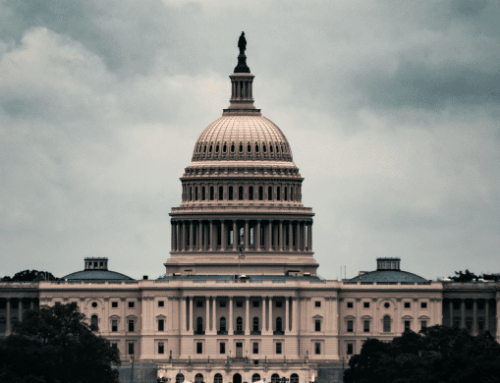Since this post was published, we’ve added additional UPLs to our breakdown of FY25 UPLs, which you can download here. The total cost of FY25 UPLs we’ve uncovered is now $30.8 billion.
The Pentagon’s FY25 Unfunded Priority Lists (UPLs), extrabudgetary wish lists required by Congress, are mostly public at this point, and they seemed to have hit a growth spurt since we last marked their height on the door frame of budgetary gimmicks. Since 2017, Congress has required the military service branches and combatant commands to submit lists of requests for funding that the Pentagon didn’t include in its budget request. By our count so far, FY25 UPLs represent $27.5 billion in extra funding, compared to about $18.3 billion last year. That’s about a $9.2 billion, or 50 percent, increase over last year. Click here for a detailed breakdown.
Admittedly, this comparison is a little imperfect because we weren’t able to find all of the UPLs presumably submitted in each year. For instance, we have yet to see lists for AFRICOM and SOCOM this year, and last year we weren’t able to find lists for SPACECOM, or for the Under Secretary of Defense for Research and Engineering. That’s because rather than making these lists publicly accessible in one place, the service branches and combatant commands just send them to Congress, at which point they seem to just trickle into public view via a range of news outlets who obtain what they can from contacts in the services or in Congress. As far as we’re concerned, it’s all part of a “don’t look too closely at these lists” plan.
Despite this accounting challenge, the numbers we do have tell a clear story of the military and Congress using these lists to add ever growing sums to the already massive Pentagon budget. The most notable change from last year was reflected in the size of Indo-Pacific Command’s list, which jumped 217 percent from $3.5 billion to over $11 billion. That’s likely a reflection of Washington’s growing interest in outcompeting China in an unfortunate race for modern military dominance. Another big jump came from Space Force, which requested $1.15 billion, a 141 percent increase over last year’s $477 million request. That conveniently coincides with the formal Space Force budget request taking a 2 percent cut this year, after doubling over the prior three fiscal years. Accounting for the UPL, Space Force is actually seeking an increase over last year’s request.
These lists present a number of problems. First, they subvert civilian control of the military. The Secretary of Defense, a civilian post, oversees the budget request for the Pentagon, but by requiring UPLs from the service chiefs and combatant commanders, Congress is ordering military leaders to circumvent the Secretary of Defense’s authority over the budget. Civilian control over the military is a bedrock principle of our Republic. Any erosion on that control is concerning.
Second, these lists fuel wasteful spending. While the regular budgeting process forces the military to think holistically and assess priorities based on available funding, these UPLs don’t weigh the funding they request against other funding needs. Furthermore, the items requested on these lists don’t require the same justifications and future cost analyses as line items in the rest of the budget.
Third, if something wasn’t important enough to squeeze into the generous $850 billion Pentagon budget request, it’s almost certainly not a priority. And in the rare case where the item is a true priority, that funding should have been included in the base budget request. There’s a certain gamesmanship to UPLs too. As the military generally has a sense of what kinds of items Congress is likely to add to the budget, UPLs encourage the Pentagon to submit a budget request that omits certain priorities, knowing that they’ll end up on the UPLs and that Congress will fund them. That’s a budget gimmick if we’ve ever seen one, and a recipe for runaway Pentagon spending.
Thankfully, legislation in Congress could help address this profligate spending practice. The Streamline Pentagon Budgeting Act would repeal the statutory requirement for UPLs, which would help reduce wasteful or unnecessary inclusions on these lists. Fiscally responsible lawmakers should pursue this legislative fix with the same gusto that fiscally irresponsible lawmakers demonstrated when they required UPLs in the first place.










